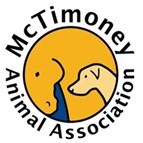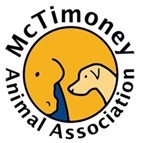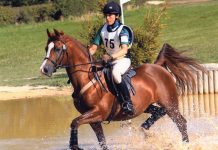McTimoney practitioner, Dr Emma Punt presented a ground-breaking concept for post-trauma care last week at the British Animal Rescue and Trauma Care Association (BARTA) conference,held in partnership with the University College Davis School of Veterinary Medicine, California.
Emma shared her vision for how vets and McTimoney therapists should rethink how they approach post-trauma care following transportation accidents with her ‘Golden Time’ treatment concept. In the UK 52% of transport incidents involving horses result in a horse being hurt and of these 30% are left with chronic issues.
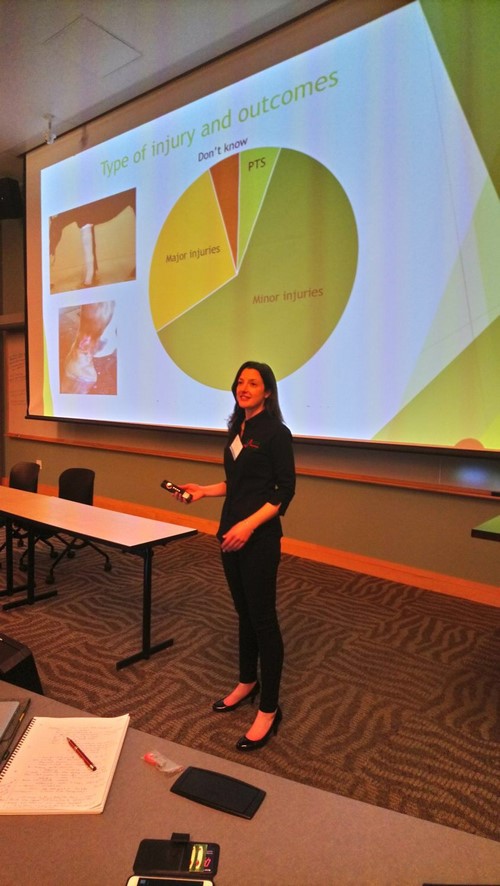 |
| Barta conference 2017. |
“In recent years I’ve seen increasing numbers of horses with musculo-skeletal issues caused by transportation accidents. This inspired me to look at how vets and McTimoney chiropractors could work in partnership to offer enhanced rehabilitation after the accident, to improve outcomes for both horses and owners.”
Emma has practised as a McTimoney equine and canine chiropractor for over 12 years. She is the research lead for BARTA whose mission is to advise, direct and train personnel involved in fire and rescue situations, to safeguard public and emergency responders and to improve the welfare and viability of animals in emergency situations.
Emma presented preliminary results at the BARTA conference from a UK wide survey that she initiated with Nottingham Trent University.
“Today, when a horse is rescued, it might be considered viable on first inspection at the roadside, but it may never return to work. It may even end up being put down at a later date. We should recognise that during an incident the horse is full of adrenalin and stress hormones. The horse has probably been sedated to enable its rescue, and it wouldn’t be safe to trot the horse up on the road.
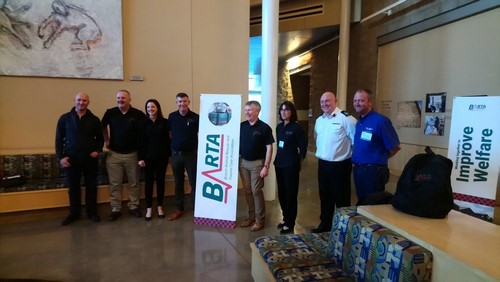 |
| Barta conference 2017 |
So a roadside assessment may not show all or any of the injuries the horse has sustained. These might even be fatal, result in the horse being put to sleep, have a detrimental impact on the horse’s ability to work, or mean that the horse cannot reach the same level of performance enjoyed before the accident or that the horse is left unsound and needs to be retired.
Taking a different approach to assessing the viability, and in particular any hidden injuries such as musculo-skeletal issues that can be treated with McTimoney, in the weeks AFTER the accident could revolutionise follow-up care. This would ensure more horses can return to work.
The 2-6 weeks after the incident is the ‘Golden Time’ when a horse would hugely benefit from being assessed by a vet and a physical therapist such as a chiropractor to improve outcomes and manage owner/rider expectations. This is the period when I believe a partnership approach between vets and chiropractors could make a huge difference.
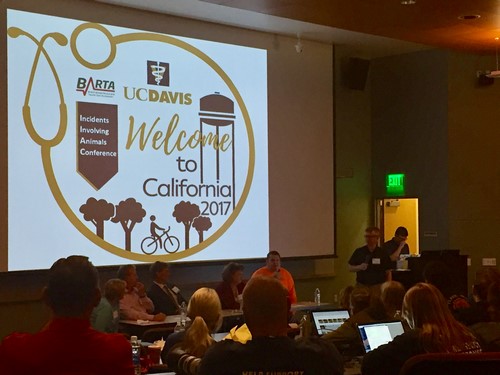 |
| Barta conference 2017 |
Clearly this time frame either has to be adjusted if the horse is on box rest, or the nature of the assessment at this point adjusted, according to the individual needs and injuries sustained and further follow up McTimoney sessions may be required as the horse recovers and returns to work”.
All members of the McTimoney Animal Association are qualified after training with the premier institution of its kind, the McTimoney College in Abingdon, having studied up to three years at postgraduate level attaining an MSc or Post Graduate Diploma in Animal Manipulation.
McTimoney Animal Practitioners are registered with the McTimoney Animal Association.
For more information about the McTimoney Animal Association visit www.mctimoney-animal.org.uk.
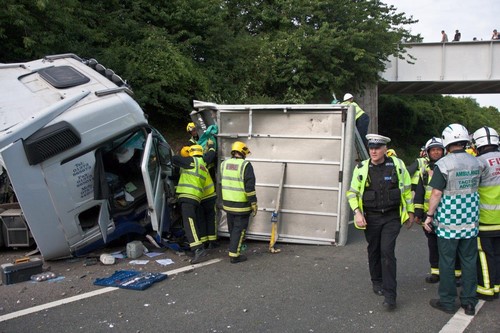 |
| Road traffice accident Thruxton. |


